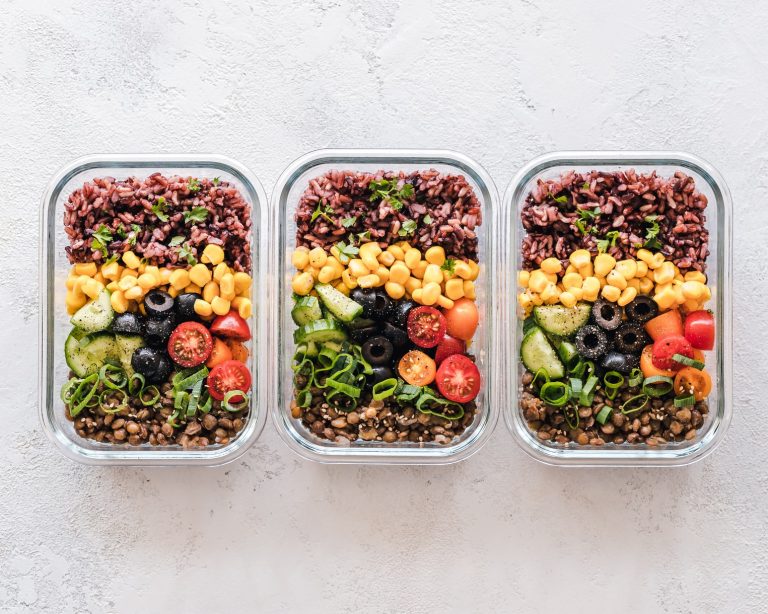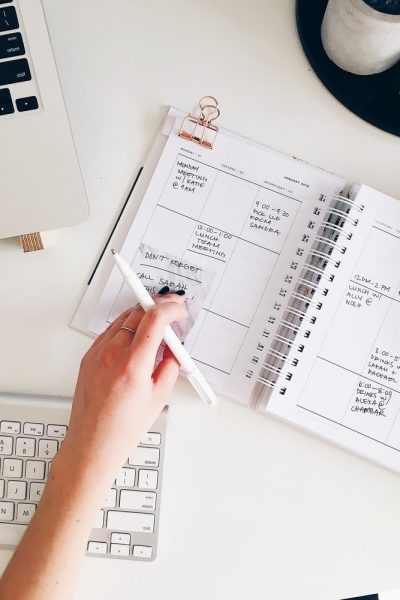How Do I Discipline Myself? 12 steps to transform your habits for good.


By Antoine G Larosiliere
Once I realized it was the key to being successful, I was determined to find out; how do I discipline myself.
My youngest son is very dynamic, but lacks quite a bit of self-discipline. I’ve been preaching to him for years on the importance of self discipline and the benefits he will gain from it. But, it’s been a challenge for both of us. I tried to model it for him, but it wasn’t enough. So, I decided to do some research, and was able to outline the twelve principles that worked for me and help me guide my son in the right direction.
How do I discipline myself?
Well, first lets make sure we’re on the same page when we refer to being self-disciplined.
What is self-discipline?
According to the Collins Dictionary, self discipline “is the ability to control yourself and to make yourself work hard or behave in a particular way without needing anyone else to tell you what to do.” Self-discipline is similar to self-control, it implies you have the ability to remove or avoid unhealthy habits that can lead to negative consequences. Self-discipline isn’t usually associated with positivity, because the word “discipline” is often associated with punishment. On the contrary, self-discipline isn’t’ a negative thing at all, it’s actually quite positive. Although it’s not something that is easy for most, there are great benefits to it. Having self discipline helps you…
- Do things in moderation: You can discipline yourself to do less of something unhealthy or destructive to you, and more of something beneficial to you; at the right time and in the right place.
- Become more patient: You are able to wait for the right opportunities, by the right people and at the right time. You don’t rush into things that aren’t thought about carefully.
- Become more tolerant: You’re able to tolerate difficult circumstances and difficult people.
- Become more understanding and considerate: You are more understanding of other’s needs and their behavior. You are considerate to what others have expressed and not expressed and show curtain situations may affect them.
- Withstand external pressures and influence: You’re able endure pressure and redirect the stresses of it. You’re able to push back on unhealthy, and negative influences.
- Become more punctual than others: You hold yourself accountable for your time, and you hold others accountable as well. You won’t show up late to important meetings and you complete important tasks on time. You lead by example while also encouraging others to follow suit.
- Become more invested in others: You care what others are doing and not doing. You encourage them to grow and be successful in their own right.
- Become more goal oriented: You place a great importance to having goals and sculpting a plan for the future. You view a life without goals as uninspiring for yourself and others.
- Become more consistent at completing tasks: You are dedicated to completing tasks that will meet your goals. You try to work as effectively as you can and as efficient as possible on a day to day basis.

“Being self-disciplined is about making small consistent changes in your habits to succeed long term.”
Don’t confuse self discipline with…
Self-discipline isn’t about being perfect, never failing to complete a task. You shouldn’t be discouraged if you didn’t accomplish what set out to accomplish at the specific time you hoped to accomplish it. It’s ok to take a nap, maybe skimp on your diet a little. No one is holding you up to some perfect standard, and you shouldn’t either. The human brain is programmed to give us lazy moments in order to preserve ourselves. Being self-disciplined is about making small consistent changes in your habits to succeed long term. Don’t confuse self discipline with…
Self-control- According to physchologytoday.com, self-control is the ability to manage one’s impulses, emotions, and behaviors to achieve long-term goals. Self-discipline are the steps, routines and habits that implements your self-control.
Habit- Habit is an action done on a regular basis, that you must use your self-discipline to regulate. Self discipline people have to choose which habits to keep or remove in their life to ensure growth and prosperity.
Motivation- Motivation is your willingness to do something. Self-discipline and motivation are both important factors in creating healthy and successful habits. When you’re motivated, and are enthusiastic and excited about a task. You’ll develop successful habits; such as working twice as hard, twice as fast and being consistently punctual.
Self-reliance- Self-reliance is the ability to depend on yourself and not on other people. Self-reliant people are confident and depend on their abilities to get the task done.
Willpower- Willpower is a sudden burst of strength, or fortitude to resist immediate temptations. Willpower is short-term, whereas self-discipline is based on long-term efforts of resistance.

Why is self-discipline important?
As adults we tend to have a good amount of experience to understand why self-discipline is important. Many children and even teenagers on the other hand, often just don’t get it. Life is difficult enough of it one, but without order it gets even more difficult. Self-discipline helps to organize your life by eliminating destructive habits and behaviors and prioritizing the good ones. Self-discipline is also important because it helps you…
- Overcome your weaknesses: It challenges you to address and overcome your bad habits, tendencies and undesirable traits. It keeps you from being in a constant state of procrastination by reducing the amount of time you spend procrastinating. It even encourages you to begin things you’ve postponed in the past.
- It leads to resilience: Becoming self-disciplined creates a system of healthy habits that allows you to endure tough times, and makes it more difficult to derail you or shake your focus.
- Helps you gain self-control: You’ll gain the ability to manage your impulses, emotions, and behaviors in most situations. Gaining self-control is extremely empowering, because it also implies no one else can control you.
- Leads you to success: According to an article in Psychological Science, “self-discipline is a better predictor of academic success than IQ. A study found that self-disciplined adolescents outperformed their more impulsive peers on every academic-performance variable, including report card grades, standardized achievement test scores, admission to a competitive high school, and attendance.”
- It gives you laser-like focus: You’re able to expand your intelligence and knowledge base, while becoming highly productive and efficient at the tasks at hand.Whatever goals you have, it keeps you working until you achieve them.
- Teaches you acceptance: You will be forced to accept your current circumstance to identify where your discipline is weakest and allow you to create a more accurate plan of attack. Acceptance gives special insight to the plan design.
- Improves your work ethics: You might become the hardest worker in the room, or one of them. Self-discipline helps to improve your work ethic by creating a system that allows you to work not just harder but smarter as well.
- Boosts your self esteem: As your self-discipline improves, you’ll finish tasks and start accomplishing goals that will make you feel better about yourself. You’ll also remove weak habits that caused you to perceive yourself negatively.
- Lead to confidence: The more self-disciplined you become, the more you’ll accomplish. The more you accomplish, the greater the track record of your accomplishments will be. Real confidence comes from seeing your own track record of success.
- It causes a spill-over effect: The Spillover Effect implies that progress in one area can lead to progress in other areas of your life. The more successful you become, the more opportunities you’ll create for yourself, leading to more successes.
- Improves your time-management skills: Time management implies the regulation of how much time you spend on specific goals or tasks. You will figure out how to manage your time effectively. You’ll be able to allocate and budget your time to different tasks.
- It broadens your sphere of influence: As you become successful due to your self-disciplining habits; the types of people you meet will expand and your opportunities for love and happiness will broaden. Even opportunities in other industries and countries will become visible.
- Helps you find your purpose: The more tasks you complete and the more goals you accomplish will allow you to discover the path that you don’t even know existed. You may discover a skill you never thought you had or pursue a career you didn’t realize you were interested in. As you succeed, your direction may change towards a path you’ve never imagined.

Why do we not have self-discipline?
Self-discipline is important to survival not only success. The lack of self-discipline can lead you to not taking care of certain requirements that affect your livelihood. You could lose your job, your driver’s license, and even end up in prison. With that being said, that is why it is one of the most essential qualities to attain if you don’t have it. If you don’t have self-discipline, you should investigate why? Understanding why you don’t have self discipline helps you identify when you’re not being self-discipline. It’s to address our weaknesses, if we can’t identify when and why we show those weaknesses. By being able to recognize it, you can finally address it. Some of the reasons why we don’t have self-discipline includes…
- We don’t have goals or a plan: Without goals, there’s no motivation to be self-disciplined. Without a plan on how we will reach our goals, we become confused, overwhelmed, and discouraged. Such feelings will likely not result in a self-disciplined approach to reaching our goals.
- We lack confidence: If we don’t believe in your abilities to get a task done, chances are we’ll avoid doing it all together. Even if we have goals and a clear plan; without confidence, it’s still difficult to muster the self-discipline to achieve those goals.
- We have low self-esteem: If we don’t like who we are, we likely will believe we are not deserving of happiness or success. If we don’t believe we are worth achieving the goals we have, it’s highly likely we won’t conjure the self-discipline we need to achieve them.
- We are not healthy or physically weak: We don’t realize how important health is to success and happiness. In truth, many of us take our health for granted. The healthier we are or, the more physically fit we are; the more we are able to achieve. There are usually too many incidences where we must complete a task, but we don’t have the stamina to finish. Self-discipline requires a strong mind as well as a strong body.
- We fear failure: Our fears can sometimes be more than enough to cause inactivity. Instead of yielding to our fears, we must see it as an opportunity to challenge ourselves to overcome them. Winning the challenge to overcome this fear, can be used as momentum to being more self-disciplined.
- We have difficulty conquering addictions: If there’s an addiction that we’re dealing with, it can take over our lives. Addictions will compromise any amount of self-discipline we already have. We cannot focus on being self discipline, until we have conquered our addictions. If you’re dealing with an addiction, please seek professional help.
- We lack the ability to moderate our vices: We all have a vice. According to the Collins Dictionary, a vice is a habit that is regarded as a weakness in someone’s character, but not usually as a serious fault. Whether it’s having a glass of wine every night, smoking a cigar, playing video games, or watching football; we all have something. The problem exists when it’s done in excess and interferes with our goals and our self-discipline.
- We are too lazy: It’s true, some people are just lazier than others; but don’t let that be an excuse for inactivity. Instead, recognize when and why we’re being lazy, and implement specific tasks or activities to do in those moments.
- We lack purpose: It’s much easier to be self-disciplined when we know our purpose. In truth, knowing our purpose galvanizes us in ways other qualities don’t. Our true purpose affects more than just ourselves. This activates and maintains our self-discipline because we understand we would be disappointing more than just us.
- We may have a disorder: Whether we have been diagnosed or not, there are some disorders that affect our self control and our ability to be self-disciplined. For more information on losing control and impulse behavior disorders, click here. If you have a disorder that affects your self-control or self-discipline, I encourage you to seek professional help.
Here are 12 things you can do to become self-disciplined.

1. Focus on viewing yourself as being disciplined.
We become what we envision. In other words, if we continue to view ourselves as lacking self-discipline, we will continue to be self-disciplined. So the goal is to focus on viewing yourself as being self-disciplined, change how you identify yourself. This will make it easier to change your habits. Psychologists call this practice “consistency bias.” Consistency bias is the tendency to judge our own behavior based on our general self-images.

2. Remove temptations in your path.
Most places we go, there will be some form of temptations. Some you can remove and others you will just have to avoid. You can revolve temptations from your home, such as games, alcohol, and tangible things that will distract you. But if the temptation is your bed; just avoid going to your bedroom at certain times. Use background music to drown out distractive noises. If you’re at the workplace, avoid certain people and place your phone or any other distractions away until your work is complete.

3. Re-evaluate the excuses you give to yourself.
Take a closer look at the reasons you use to not chase your dreams and goals. I’m sure they are probably not going away anytime soon. The truth is, they are just excuses; not a real hindrance in accomplishing your goals. The only real obstacle is you! You are the one using these excuses to stay inactive or stagnant. You are the one making it easier on your competition. You are the one who will have to live with yourself afterwards. So treat your excuses like what they really are; just excuses.

4. Focus on future rewards, not immediate gratification.
Growing up, children became used to immediate gratification. As we get older, we transition into young adulthood, we realize the importance of holding out for greater rewards. Self-discipline and delaying gratification goes hand in hand. To delay immediate gratification, self-disciplining is required. To become self-disciplined, you must become skilled at delaying gratification. Studies have shown that delayed gratification is one of the most important qualities found in successful people.

5. Reduce your decision making for the week.
“Decision Fatigue” Is the result of making too many decisions throughout the day that affect your ability to make wiser ones at the end of the day. This is why supermarkets place candy by the cash registers. They expect you to make a poor impulse buy after making so many shopping decisions. In a Health Psychology study, it was found that “nurses were likely to make less efficient and more expensive clinical decisions about patient care the longer they worked without a break.” Your consistency in self-disciplining can be greatly affected if you’re making poor decisions by the end of the day, so you must do your best to prevent “decision fatigue.” Many successful people have some of their decisions pre-made as a preemptive measure to fatigue. For instance, they’ll have clothing, lunch, dinner, and an exercise schedule set up for the whole week. So make all your easy, routine decisions in advance and you’ll have a great chance at preventing “decision fatigue.”.

6. Develop a daily routine
If you do something everyday, it becomes easier, and eventually second nature to you. Your only job then is to not break that momentum. That’s essentially how you develop a routine. This is about creating good habits, not immediate results. Eventually those good habits will yield results, but remember the focus is creating a system of habits that will ultimately lead you to success. It takes an average of 66 days to form a new habit. So, do it for two months straight, and it should be on automatic pilot by then.

7. Take advantage of when you’re at your best.
Are you a morning person, or a slow starter? Are those evening hours the times you put in maximum effort. Do you get a second wind after lunch or get lazy? No one knows you better than you know yourself, so put some of that knowledge to good use. Set yourself up for success sooner rather than later. Use the times when you’re at your best to do the most challenging tasks, and the times of the day when your energy and focus is low for the easier tasks.

8. Practice focusing.
It takes a degree of focus to be self-disciplined. And just like everything else, to be good at focusing, you must practice focusing. We all could use a little focus training, no matter well or how little you’re able to focus currently. To do so, you must…
- Choose a task you have difficulty staying focused during.
- Remove distractions, if any: It’s easier to start without distractions. When your focusing skills have improved, you can implement distractions during your training.
- Set a timer for 10 minutes.
- Give 100% effort for the duration of the 10 minutes.
- Take a break 2 minute minimum, 5 minutes maximum.
- Assess your progress: Was 10 minutes too long, too short? Was the task too easy or too difficult?
Adjust the training: Extend or shorten the minutes.
Repeat the process.

9. Keep yourself strong.
Improving your self-discipline will indeed lead you to eventual success, but If you’re not strong, you’ll never be self-disciplined enough to get there. You have to take care of your body and your mind, and keep them durable and sharp. You do that with diet, exercise and sleep. More specifically, you should…
- Go to bed earlier.
- Get no less than 6 hours of sleep and no more than 8.
- Wake up early to exercise and get it out of the way.
- Eat a healthy breakfast
- Have a healthy snack an hour or two before lunch.
- Eat a healthy lunch.
- Take a 20 minute power nap if there is time.
- Have another healthy snack 2 hours before dinner.
- Have a balanced dinner meal. Have a meat or protein source, your starch, and your vegetables or salad.
- Have a carbohydrate-rich evening snack. Eat this an hour or two before you go to bed to help you sleep. Stay away from heavy, greasy foods or foods high in refined sugars.

10. Keep track of your progress.
I’m sure you’ve heard the saying, seeing is believing.” Well, here is a better one, “seeing is motivating.” Measuring your progress is a great way to see your improvements, as well as motivating you to continue. You will also gain immeasurable insights to your performance and how you can further your improvements. Use a tracking program or mechanism, like a spreadsheet or an app. You can measure almost anything, but for self-disciplining purposes try measuring…
- How much time is required for each task to be completed?
- How many tasks are being completed each day?
- What time of day allows the most productivity in completing tasks?
- Are goals being accomplished monthly, quarterly or annually?
- How many breaks throughout the day do I need for maximum effectiveness?
- Which distractions or temptations have the greatest effect on my progress?
- Which routine allows for the most efficient use of my abilities?

11. If you start slipping, adjust the plan.
No plan is ever perfect from the onset. All plans must be tweaked along the way to make sure goals are accomplished. You won’t get to being self-disciplined without having hick-ups every now and then. Don’t have these unrealistic expectations, and don’t lie to yourself about who you are or the progress you’ve made. Remember we’re all just humans. When you do have a hick-up, or find yourself cutting corners; instead of being hard on yourself, use this opportunity to adjust the plan. Maybe you need to add more breaks, or get more rest. Maybe the time allotted just wasn’t enough. Find the weaknesses in the plan and adjust it.

12. Meditate as often as you can.
Becoming self-discipline is supposed to help eradicate inactivity, but there is also a form of inactivity that helps us be more self-disciplined as well. No, I’m not talking about laziness, I’m referring to meditation. Meditation is defined as a set of techniques that are intended to encourage a heightened state of awareness and focused attention.There is research that shows regular meditation can improve self-discipline. In a 2013 study, Stanford researchers found that undergoing meditation training increased mindfulness, boosted happiness, and improved emotional regulation. There are several ways to get started with meditation.
- Try the app Headspace: Which offers daily guided meditations for things like relieving stress and boosting focus.
- Watch guided meditation YouTube videos.
- Listen to a guided meditation podcast.
- Meditate on your own: Sit with your eyes closed for a few minutes, focus on your breath. As your attention wanders, work to bring your focus back to your breath.
Self-discipline will be a work in progress for many of us. Some days will be better than others, and there will be set-backs to go along with your progress. But, as long you stay committed to your growth and don’t give up on yourself, you’ll eventually get there. Hopefully this article has been helpful. Also visit my YouTube channel for more insight to these topics.
The Bully Experience "Daniel's Story"

Sign up for our newsletter and Read the novel For Free!
Stay updated. Sign up for our newsletter, and get the first two chapters of The Bully Experience Daniel’s Story absolutely free.